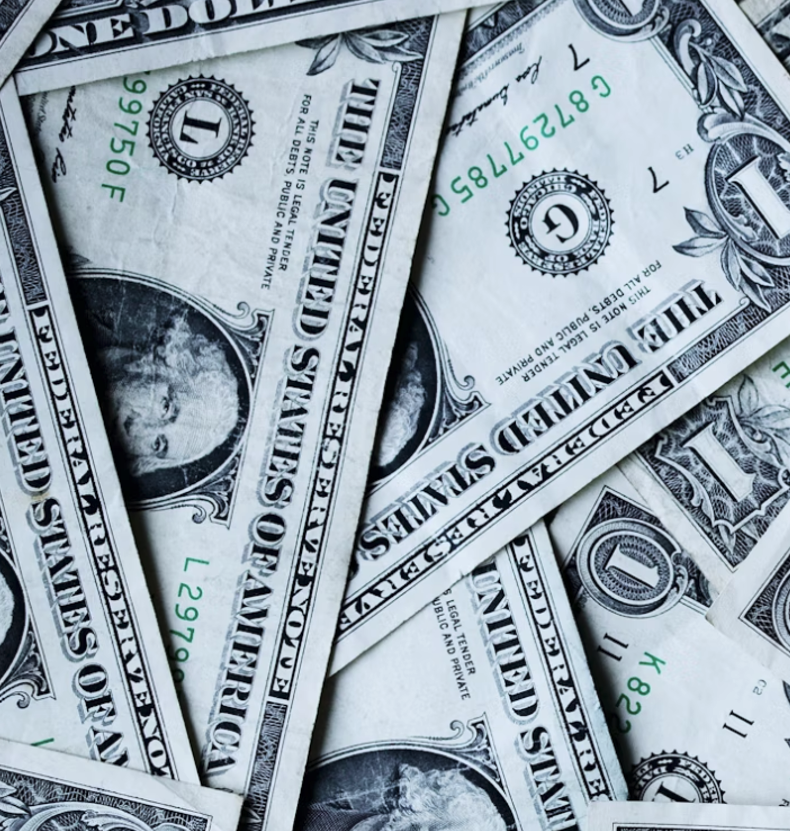
Unexpected expenses can turn a stable financial situation into a crisis overnight. Whether it's an unexpected medical bill, urgent home repair, a car that won’t start or sudden loss of income, financial emergencies require quick and reliable solutions. Jersey Shore residents have several options to manage short-term financial setbacks, including emergency loans, credit alternatives, and local assistance programs. This guide explores the best ways for New Jerseyan’s to handle financial difficulties while maintaining long-term stability.
When faced with an urgent financial need, a loan can provide immediate relief. However, not all loans are structured the same way, and some come with risks. Understanding the types of emergency loans available is essential before making a borrowing decision.
A personal loan from a bank or credit union is often the best choice for borrowers (at least in comparison to some of the other choices outlined below) due to lower interest rates and well-structured repayment plans. Many traditional lenders offer unsecured personal loans, meaning no collateral is required. However, approval depends on credit history, income stability, and existing debt.
For those with a strong credit profile, local credit unions and community banks may offer better terms than large financial institutions. They often have lower fees and more flexible repayment options.
If your credit score is low, securing a loan becomes more challenging but not impossible. Several lenders in the New Jersey area specialize in bad credit loans, offering funding to individuals with past financial struggles. These loans typically have higher interest rates and shorter repayment terms, making them expensive if not managed properly.
When considering a bad credit loan, it’s important to:
Compare multiple lenders to find the lowest interest rate.
Read the loan terms carefully to avoid hidden fees.
Borrow only what is necessary to prevent long-term financial strain.
Local lenders and online platforms may offer online loans bad credit options, but borrowers should be cautious of predatory lending practices. Researching lenders thoroughly and verifying their legitimacy can prevent unnecessary financial setbacks - and, as always, read the fine print.
Payday loans and car title loans are widely available but should be approached with extreme caution. These short-term, high-interest loans often create more financial problems than they solve. In New Jersey, payday loans are heavily regulated, with a cap on fees and interest rates, but they remain a last-resort option.
A safer alternative is a small-dollar loan from a local credit union. These loans offer manageable repayment terms and significantly lower interest rates than payday lenders. Some banks also offer small personal loans designed to help individuals avoid predatory lending traps.
Loans aren’t the only way to handle an emergency. Depending on the situation, several alternative options may provide financial relief without an unmanageable burden of debt.
Many credit cards allow cash advances, which provide immediate funds but often come with high interest rates and fees. While convenient, these should only be used if no other affordable options are available. Paying off the balance quickly can prevent excessive interest from accumulating.
Local charities, non-profit organizations, and government programs offer financial aid for individuals facing hardship. Some resources include:
New Jersey SHARES – Provides emergency financial assistance for utility bills.
Catholic Charities of New Jersey – Offers rental, food, and emergency assistance.
Food Banks and Shelters – Organizations such as Fulfill NJ provide essential resources to those struggling with daily expenses.
Before turning to loans, checking eligibility for local assistance programs can help cover immediate needs without accumulating debt.
Many service providers offer payment plans for unexpected expenses. Whether it’s a medical bill, utility charge, or rent payment, reaching out to the provider and negotiating a temporary extension or installment plan can offer relief without financial penalties.
Medical facilities, for instance, often have hardship programs that reduce or defer bills for those experiencing financial difficulties. Utility companies may also offer assistance programs or flexible payment plans during economic hardship.
Addressing a financial emergency there and then is only part of the solution. Building financial resilience can prevent similar situations in the future.
An emergency savings account provides a financial cushion for unexpected expenses. While saving money may not be possible in every situation, setting aside even a small amount each month can make a significant difference over time. A high-yield savings account can maximize interest earnings, helping funds grow faster. The key to building a resilient emergency fund is consistency - make sure you’re setting something aside every pay cycle.
A strong credit score improves access to affordable lending options. Steps to improve credit include:
Paying utility bills as well as other expenses on time to avoid late payment penalties.
Reducing outstanding debt to improve credit utilization.
Checking credit reports for errors and disputing inaccuracies.
By strengthening credit, individuals increase their chances of qualifying for better loan terms in the future.
Unexpected emergencies often arise from medical issues, property damage, or job loss. Having the right insurance policies in place—such as health, renters, or disability insurance—can prevent financial disasters. Reviewing insurance coverage annually ensures adequate protection without overpaying for unnecessary policies.
Financial emergencies can happen to anyone, but the way they are managed determines their long-term impact. The Jersey Shore area offers multiple financial solutions, from traditional personal loans to assistance programs and alternative credit options. While borrowing may be necessary in some cases, exploring all available resources and adopting sound financial strategies can help individuals regain stability without facing long-term, crippling debt.